AI Agents are emerging as a new technological pillar in digital transformation, enabling enterprises to automate processes, make data-driven decisions, and enhance customer experience.
However, to build effective AI Agents, businesses need professional AI Agent development services. This article will help you understand what AI Agents are, how to implement them effectively, and why BAP Software should be your AI partner.
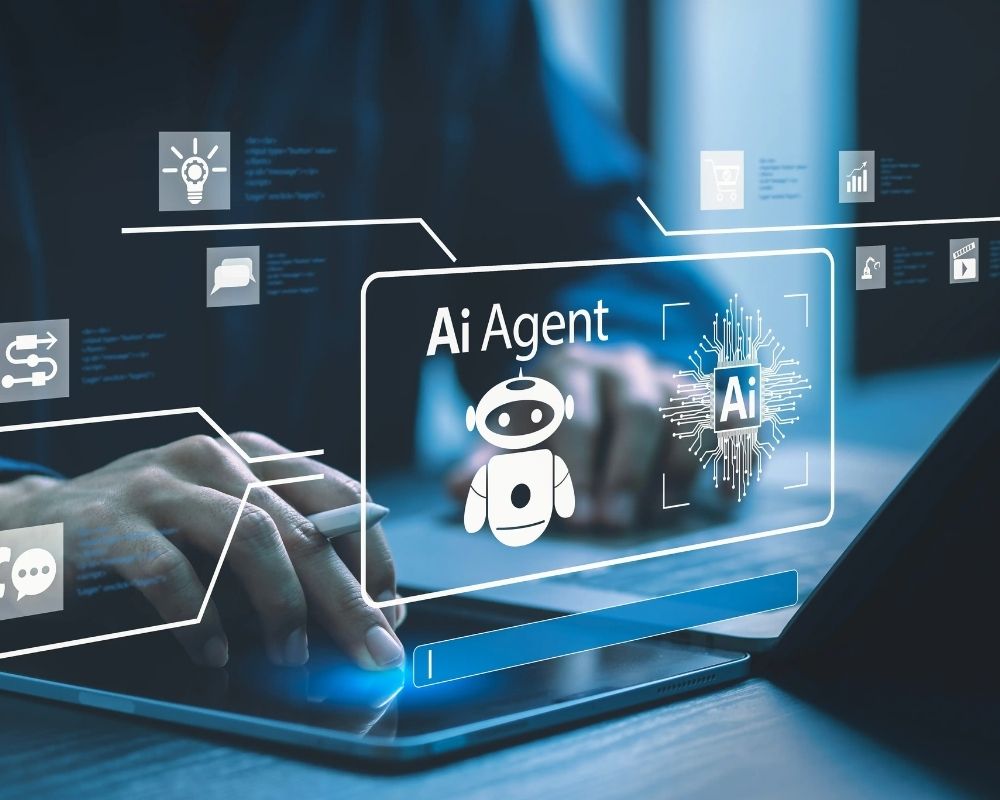
AI Agent Development Services – A Leap Forward for Modern Enterprises – Source: Computerworld
What is an AI Agent?
An AI Agent is a software system capable of observing, analyzing, making decisions, and acting autonomously to achieve specific goals. Unlike traditional chatbots that operate based on fixed scripts, AI Agents can understand context, learn from data, and interact flexibly – like an “intelligent virtual assistant.”
Key Features of AI Agents
Automatically collect information from multiple sources (web, CRM systems, APIs, etc.)
Analyze data and infer actions using machine learning or LLM (Large Language Models)
Execute actions without detailed step-by-step programming by humans
Interact using natural language, across multiple channels (chat, voice, email, etc.)
Common Types of AI Agents
Reactive Agent: Responds directly based on the current state, without memory.
Example: AI detects customer emotions through voice and adjusts responses accordingly.Deliberative Agent: Capable of reasoning and planning in multiple steps to achieve a goal. Common in enterprise assistants or multi-layered logic sales bots.
Learning Agent: Improves behavior over time by learning from feedback and data.
How is an AI Agent different from a chatbot?
| Criteria | Traditional Chatbot | Modern AI Agent |
|---|---|---|
| Operation Mechanism | Rule-based | AI-driven, ML and LLM |
| Context Understanding | Limited | High, context-aware responses |
| Learning Capability | None | Continuously learns from new data |
| Purpose | Answer simple queries | Automate tasks, make decisions |
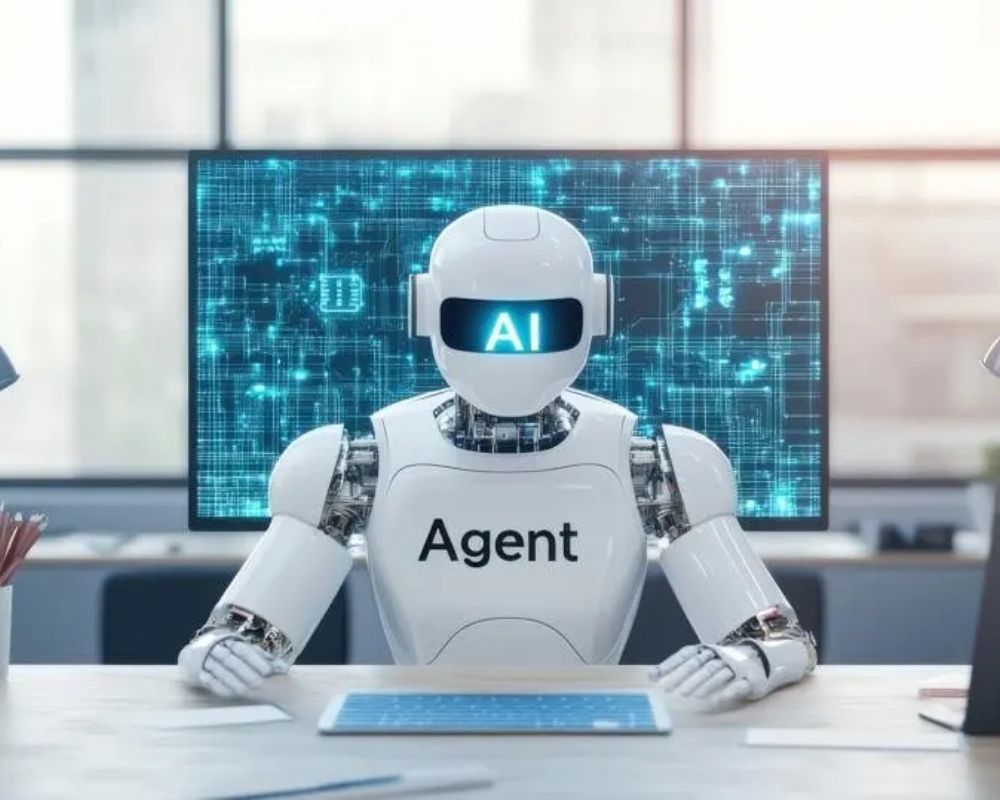
What is an AI Agent? Source: Forbes
Benefits of AI Agents for Enterprises
The rise of AI Agents is fundamentally transforming how businesses operate, from customer interaction to internal process management. More than just tools, AI Agents act as strategic assistants, enabling more accurate decisions and optimal resource utilization.
Automate Complex Processes
- AI Agents can handle multi-step processes like receiving information, analyzing needs, recommending solutions, and tracking next actions.
- Example: In finance, an AI Agent can process account opening requests, verify documents via OCR, check credit history, and make automated decisions.
Intelligent Data-Driven Decision Making
- AI Agents analyze data from various sources (CRM, ERP, customer behavior, historical data) to provide actionable insights.
- The system empowers businesses to be proactive – forecasting trends, optimizing campaigns, and continuously improving performance.
Enhance Customer Experience
- AI Agents can remember context, habits, and interaction history, enabling personalized conversations.
- Customers feel they are served faster, more accurately, and with less friction compared to traditional interactions or static chatbots.
Cost Savings & Resource Optimization
Reduce staffing costs by automating repetitive tasks (customer support, data entry, reporting, etc.)
Minimize errors through logic analysis and continuous cross-checking by AI Agents
Scalable and Flexible
- Once the AI Agent system is properly built, businesses can expand its use to other tasks and departments simply by retraining the agent with new data.
- This is an ideal foundation for smart growth strategies and sustainable digital transformation.
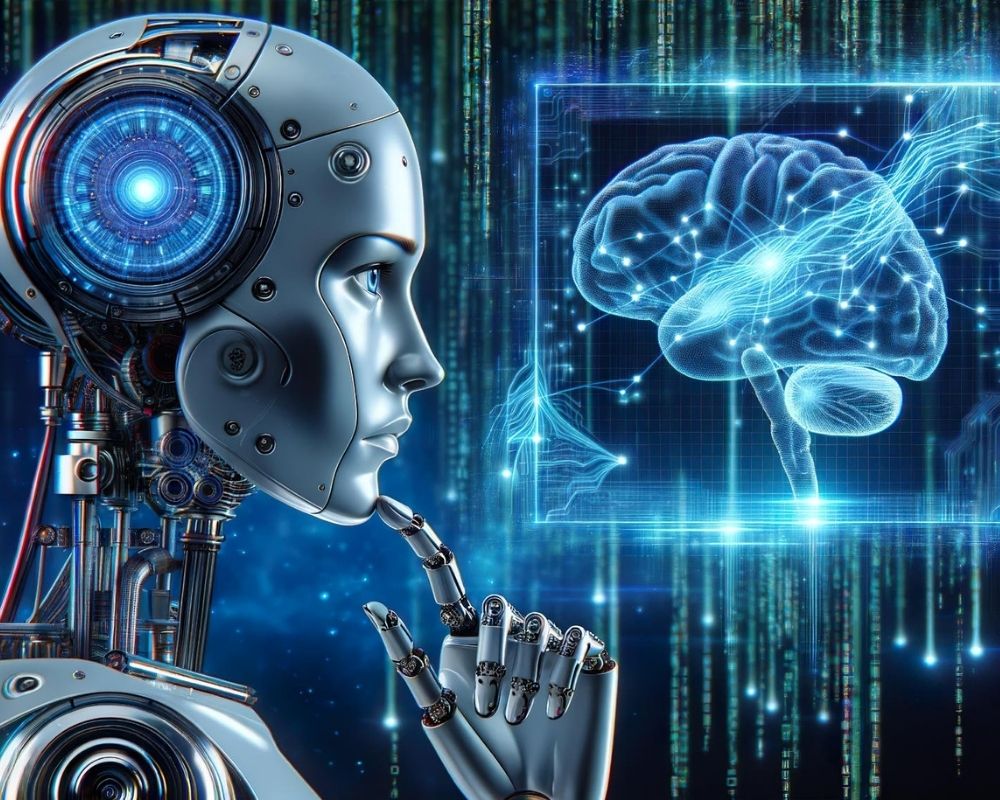
Benefits of AI Agents Source: Live Blog Spot
Key Application Areas for AI Agents
AI Agents are not just a tech trend but are being practically applied across industries, enhancing productivity and user experience at scale.
Retail & E-Commerce
Acts as a virtual advisor: understands customer behavior and offers personalized product recommendations
Provides 24/7 multi-channel customer service (website, chatbot, social media)
Demand forecasting and smart inventory management
Finance & Banking
Supports account opening, credit processing, and identity verification via eKYC
Provides personalized financial recommendations based on spending history and market trends
Analyzes transactions to detect fraud or unusual behavior
Manufacturing & Enterprise Operations
Monitors production lines: detects faults, optimizes performance, suggests preventive maintenance
Acts as an automatic “coordinator” between ERP, IoT, and BI systems
Healthcare
Personal health advice, medication reminders, disease risk alerts based on biometric data from IoT devices
Supports doctors in analyzing medical imaging (X-rays, MRI) or answering basic patient queries
Regardless of industry, AI Agents can be customized to address specific challenges, deliver practical value, and increase competitive advantage.
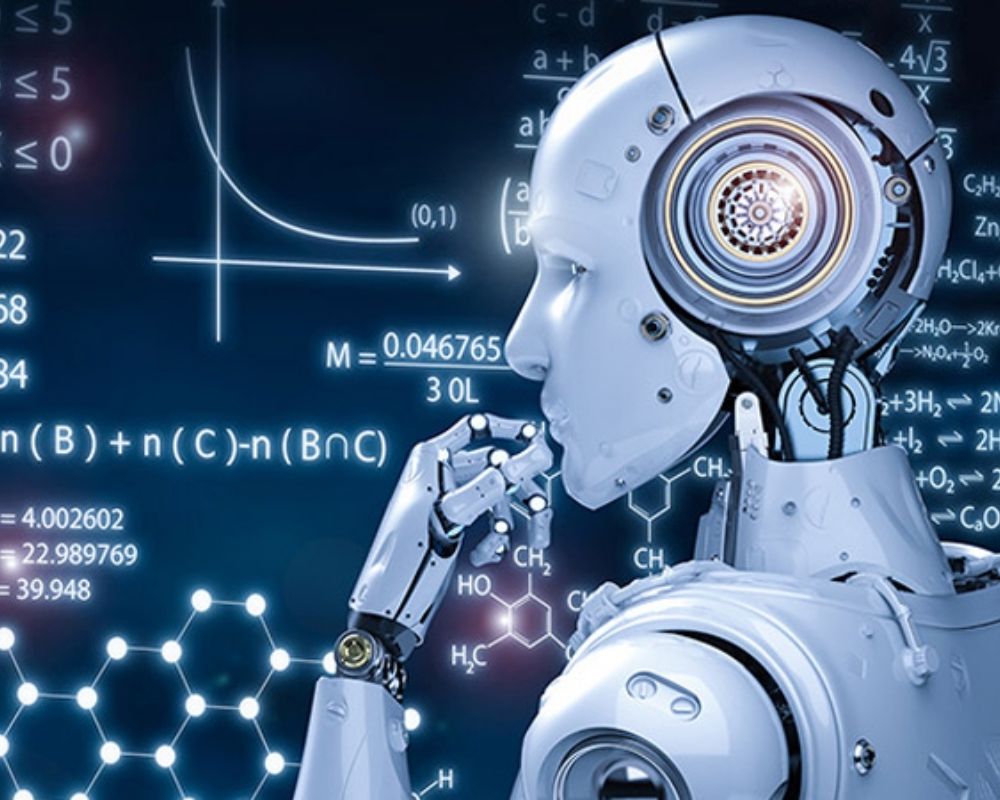
Top AI Agent Application Areas Source: Sea and Job Magazine
How to Build an Effective AI Agent
Developing an AI Agent is not just a technical task but is closely tied to business logic, data, and integration with existing enterprise systems. To ensure effectiveness and scalability, AI Agent development should follow these key steps:
Define Specific Goals and Problems
- Businesses must clearly define what the AI Agent will solve: customer support, operation coordination, or data analysis?
- This determines the appropriate AI Agent type (Reactive, Deliberative, or Learning Agent).
Prepare Interaction Data and Context
- Data is vital to AI Agents: interaction scripts, customer history, reports, forms, internal documents, etc.
- Data should be standardized, categorized, and of high quality for training.
Choose the Right Technology Stack
Popular AI Agent platforms today include:
LLM with RAG (Retrieval-Augmented Generation): Combines AI with internal knowledge bases
LangChain, AutoGPT, AgentGPT: Multi-agent system frameworks
OpenAI GPT, Claude, Cohere: Powerful language generation platforms
Integrate with Enterprise Workflows
- AI Agents must integrate with CRM, ERP, data warehouses, email, chatbot, call centers, etc., to maximize efficiency.
- Multi-channel integration allows users to interact with the AI Agent via familiar platforms (web, mobile, Zalo, Facebook, etc.)
Continuous Testing, Measurement & Optimization
- Set clear KPIs: accuracy rate, processing time, user satisfaction, etc.
- Track interaction behavior to refine models and update training data for continuous learning improvement.
Building an effective AI Agent is a continuous process, requiring businesses to tightly align technology – data – and operations strategy to ensure sustainable AI value creation.
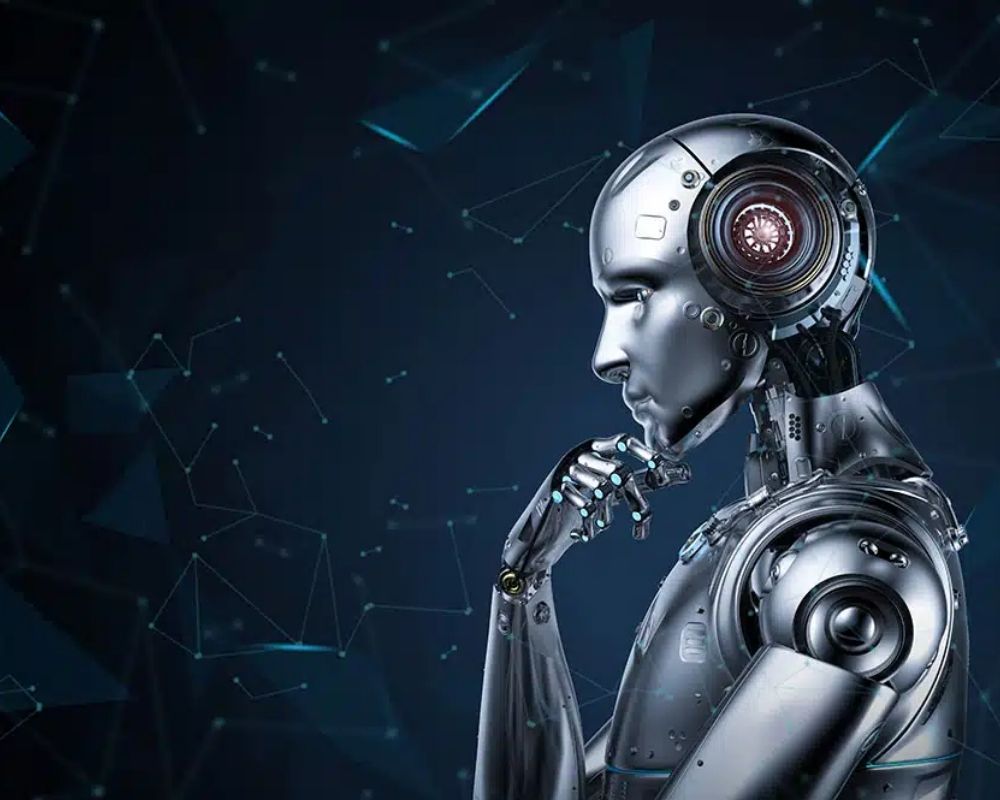
Steps to Build an Effective AI Agent Source: REGENT
BAP Software – A Specialized AI Agent Development Company
As enterprises increasingly seek automation and personalization solutions, BAP Software has emerged as a leading AI Agent development company in Vietnam, offering flexible, secure, and industry-specific AI Agent solutions.
AI Agent Capabilities at BAP
Tailored to Business Problems: BAP does not offer one-size-fits-all AI; each AI Agent is built according to the specific logic and workflow of each client
LLM + RAG + Internal API Integration: Enables AI Agents to understand language and retrieve internal data contextually
Diverse Implementation: From AI chatbots, internal virtual assistants, automated task coordination systems to operational analysis support
Technologies Used
Large Language Models: OpenAI GPT-4, Claude, Cohere, etc.
Frameworks: LangChain, AutoGPT, AgentVerse, Semantic Kernel…
Vector Databases: Pinecone, Weaviate, Chroma…
API Integrations: CRM, ERP, Email, Call Center, Helpdesk…
Notable Projects
Internal Customer Support AI Assistant: Enables agents to retrieve contract info and handle scenarios directly in the chat interface
AI for Production Line Monitoring: Automatically logs, analyzes, and coordinates fault data from IoT to an analytics dashboard
Multi-Agent for Marketing Data Coordination: Extracts data from GA4, CRM, and training documents to suggest campaign strategies
Why Choose BAP?
Expert AI engineers who combine technical skills with deep business understanding
Structured and controlled development, not just plug-and-play AI
Strict security compliance, deployed according to ISO/IEC 27001 standards
If you’re seeking a trustworthy AI Agent development partner with practical business insight and long-term deployment capacity – BAP Software is your top choice.
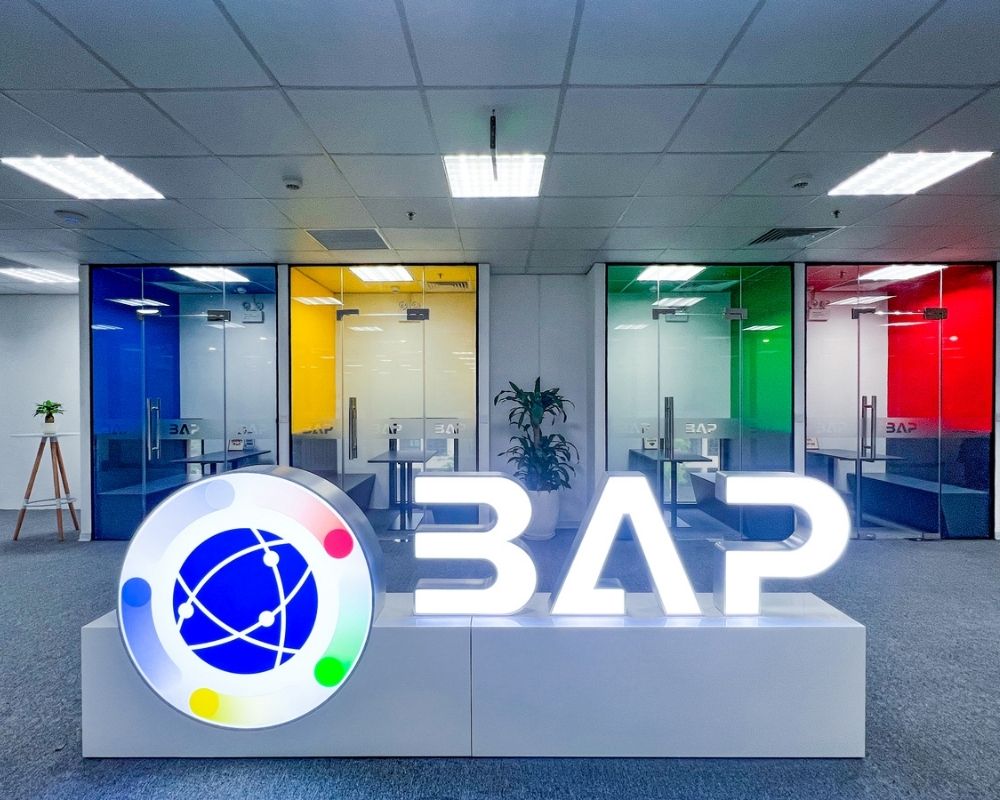
BAP Software – Effective AI Agent Development Company Source: BAP Software
Conclusion & Recommendations
AI Agents are no longer a distant concept in the tech world – they are becoming strategic pillars in the digital transformation journeys of many enterprises. With the ability to understand context, learn continuously, and process complex data, AI Agents are ushering in a new era of smart automation, personalized experiences, and enhanced operational efficiency.
However, building and deploying AI Agents requires more than just good technology – it demands long-term thinking, high-quality data, and an experienced development partner. A strong AI Agent is the result of the right algorithms, the right data, the right integrations, and continuous optimization aligned with business goals.
AI Agent development services are not just a trend – they are a smart path for enterprises to optimize performance. Partner with BAP Software to build experimental and sustainable AI Agents today.
Learn more about BAP’s AI services here!












